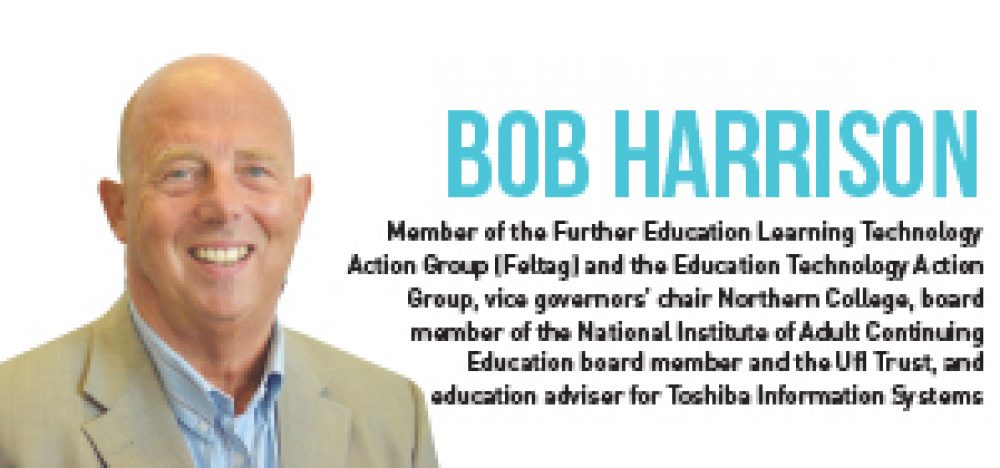Funding and learner involvement figured in Feltag recommendations earlier this year. Bob Harrison outlines his view of the government response issued this month.
So Skills Minister Matthew Hancock has finally published his response to the 30-plus recommendations in the Feltag report launched in 2014 at the Education Innovation Conference in Manchester.
The reason for the delay in releasing the response may be a reflection of the cumbersome and bureaucratic machinations of government, but I think it has more to do with the barriers to innovation and change which are culturally and systemically built into our FE and skills sector.
The main recommendations were around the themes of horizon scanning, regulation, infrastructure, funding, learner involvement, employer engagement and probably the most important workforce capability and capacity.
All recommendations have been accepted with some needing further clarification and behind the scenes conversations and negotiations.
None has been rejected, suggesting a meeting of Feltag members’ and ministerial minds.
It is obvious from the Minister’s response that some agencies have been accommodating and responsive, but reading between the lines it is clear where the resistance has come from and those issues are now areas for further work and negotiation.
Reading
between the lines it is clear where the resistance has come from and those issues are now areas for further work and negotiation
There will be some who will argue the response does not go far enough. For example, many contributors to the process wanted the “50 per cent online” set as a target and to be achieved much earlier. However, there were others that claimed that would be unachievable for many providers and would create system instability.
Personally, I am pleased with the overall response and would much rather the Minister tries to take people with him on this journey rather than a Ministerial
dictat which frankly is not Mr Hancock’s style.
This will be a long term paradigm shift where subtle nudges to a range of drivers will eventually create a culture where teachers will feel confident to innovate with technology enhanced learning.
Some people have concerns that a lot of the actions have been delegated to agencies such as Jisc [formerly the Joint Information Systems Committee] and Education and Training Foundation.
Martyn Harrow, JISC chief executive and Feltag board member, has given assurances that FE will be a bigger priority in future and in fact has increased the resources and restructured the FE team to support the work of the Regional Support Centres.
The ETF is still finding its feet and while it has had a massive investment from the Department for Business, Innovation and Skills — budgeted nearly £30m so far — there are some FE governors, principals, providers and teachers asking questions about the pace and impact of its work.
Personally, I am concerned that the £1m ETF has allocated to support learning technology is hopelessly inadequate and will go nowhere near the massive up-skilling which needs to happen and quickly.
We are still awaiting an announcement as to who the preferred bidders are for the Learning Technology tender issued early in 2014.
So how do we embrace and adopt ‘the spirit of Feltag’ rather than focus on minimums like “10 per cent online” courses?
How do we ensure we do not fall into the trap of thinking that technology-enhanced learning is just about online learning?
I am convinced we can grasp the opportunity that Feltag presents and catalyse FE in its transition from an industrial model to one which embraces and exploits the digital world.
Don’t be fooled — Feltag is not about technology. It is about mindset, vision, leadership and political will.
Bob Harrison, Member of the Further Education Learning Technology Action Group (Feltag) and the Education Technology Action Group, vice governors’ chair Northern College, board member of the National Institute of Adult Continuing Education board member and the UfI Trust, and education adviser for Toshiba Information Systems



Your thoughts